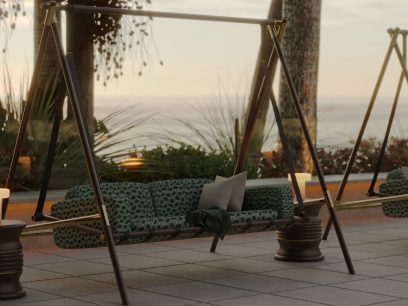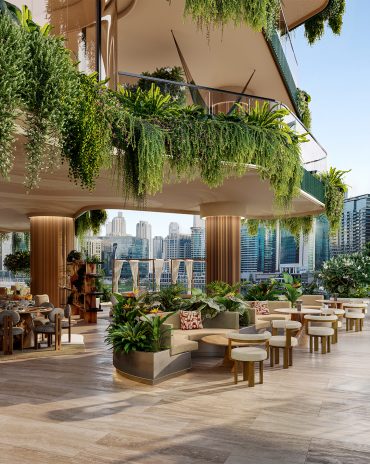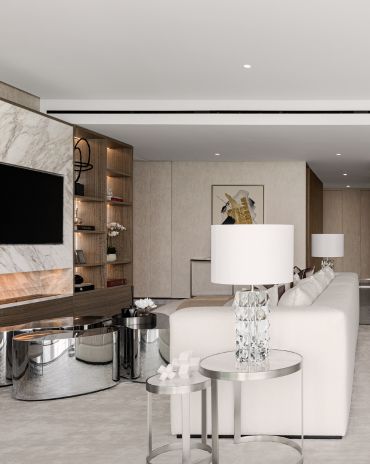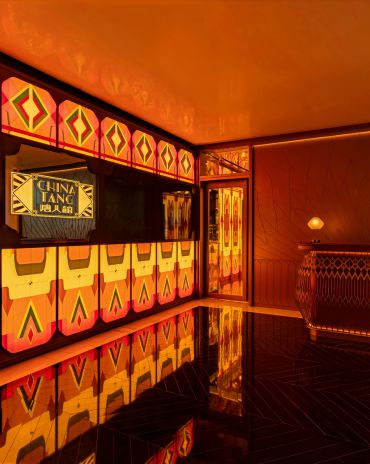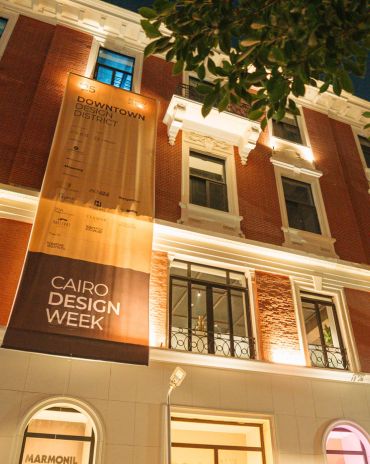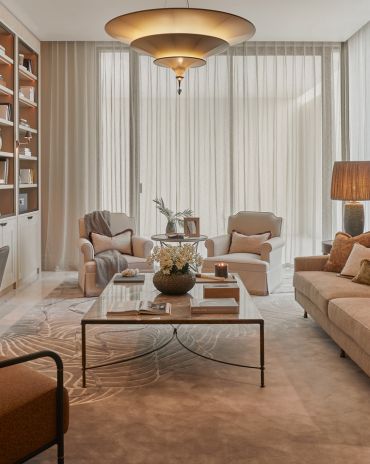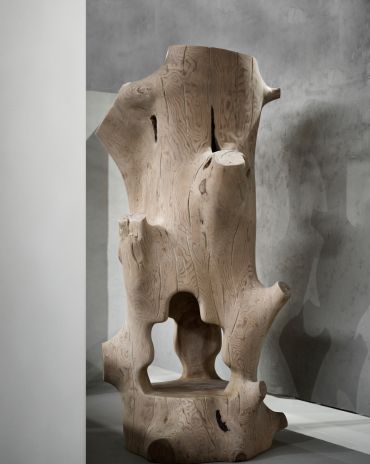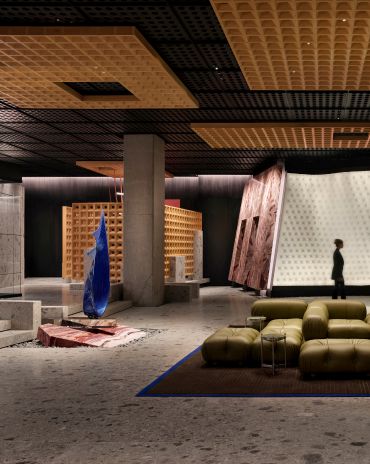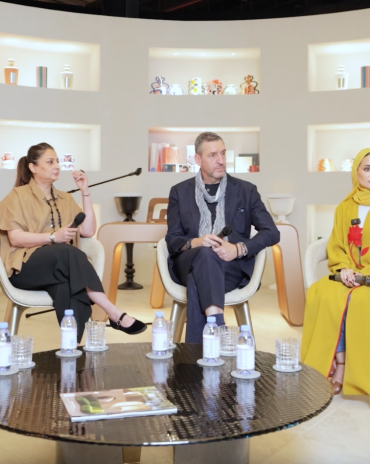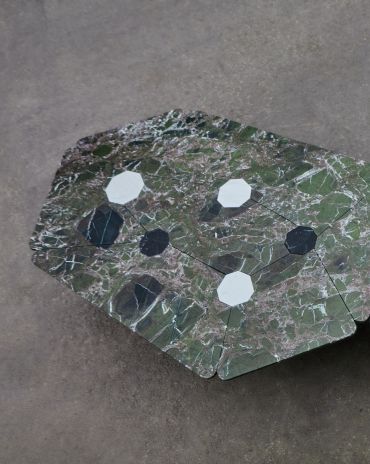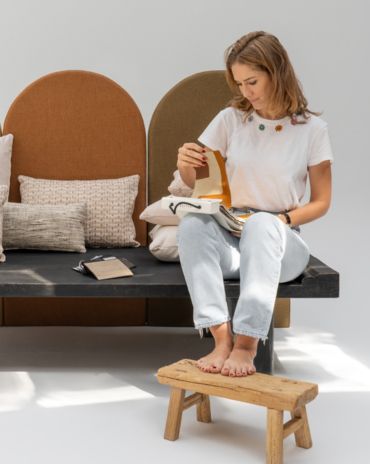Copyright © 2025 Motivate Media Group. All rights reserved.
A Surreal Tribute
“Water, salt and olive oil. That’s what it takes to survive,” says designer Philippe Starck, who created the new La Almazara olive oil museum outside Ronda, Spain
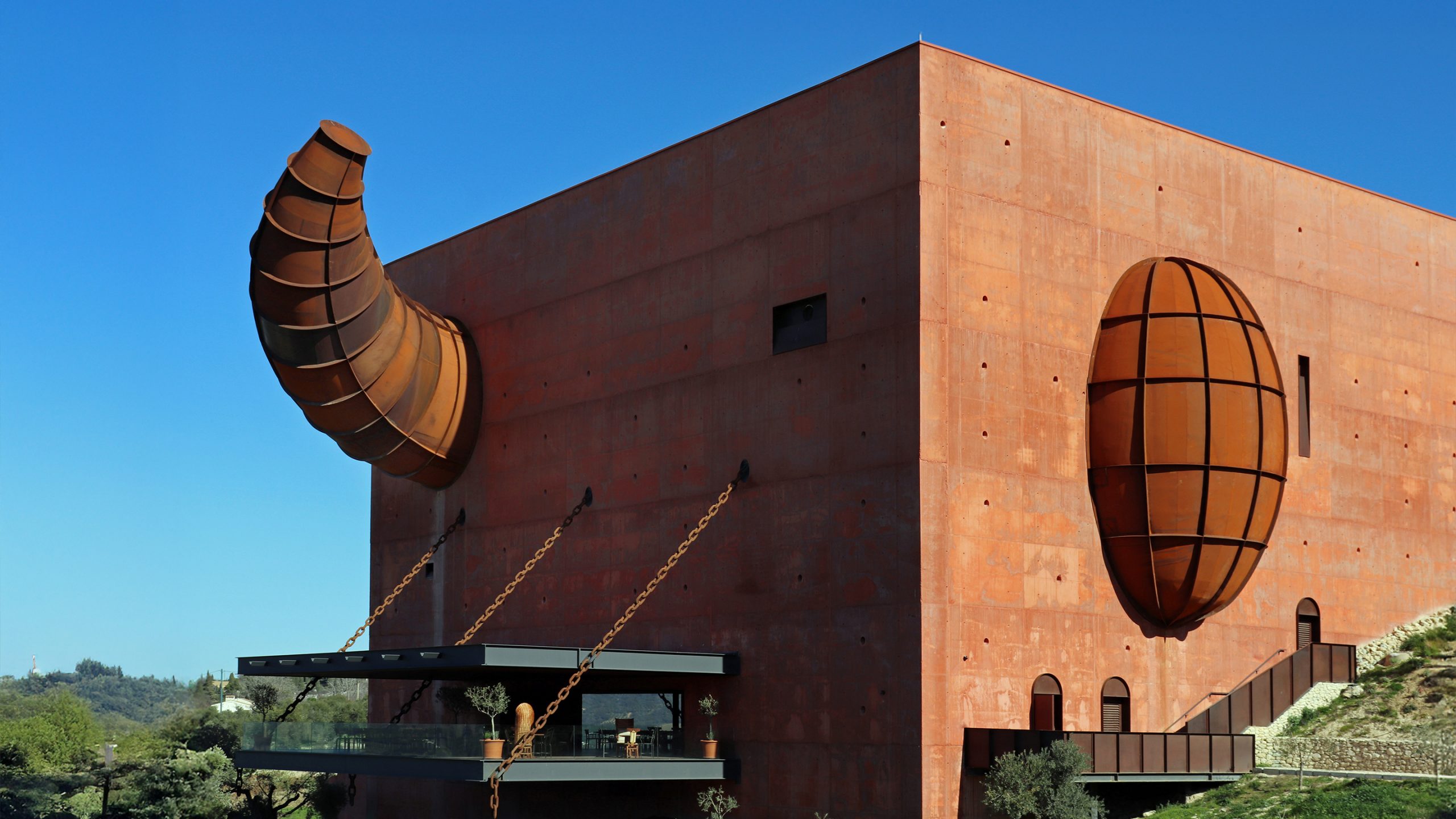
In the heart of Andalusia’s rolling olive groves, a striking red cube rises like a surrealist monolith from the earth. This is La Almazara, a bold fusion of art, architecture and agrarian reverence. It is also the latest creation of French designer Philippe Starck, and an homage to one of the Mediterranean’s most sacred gifts: olive oil.
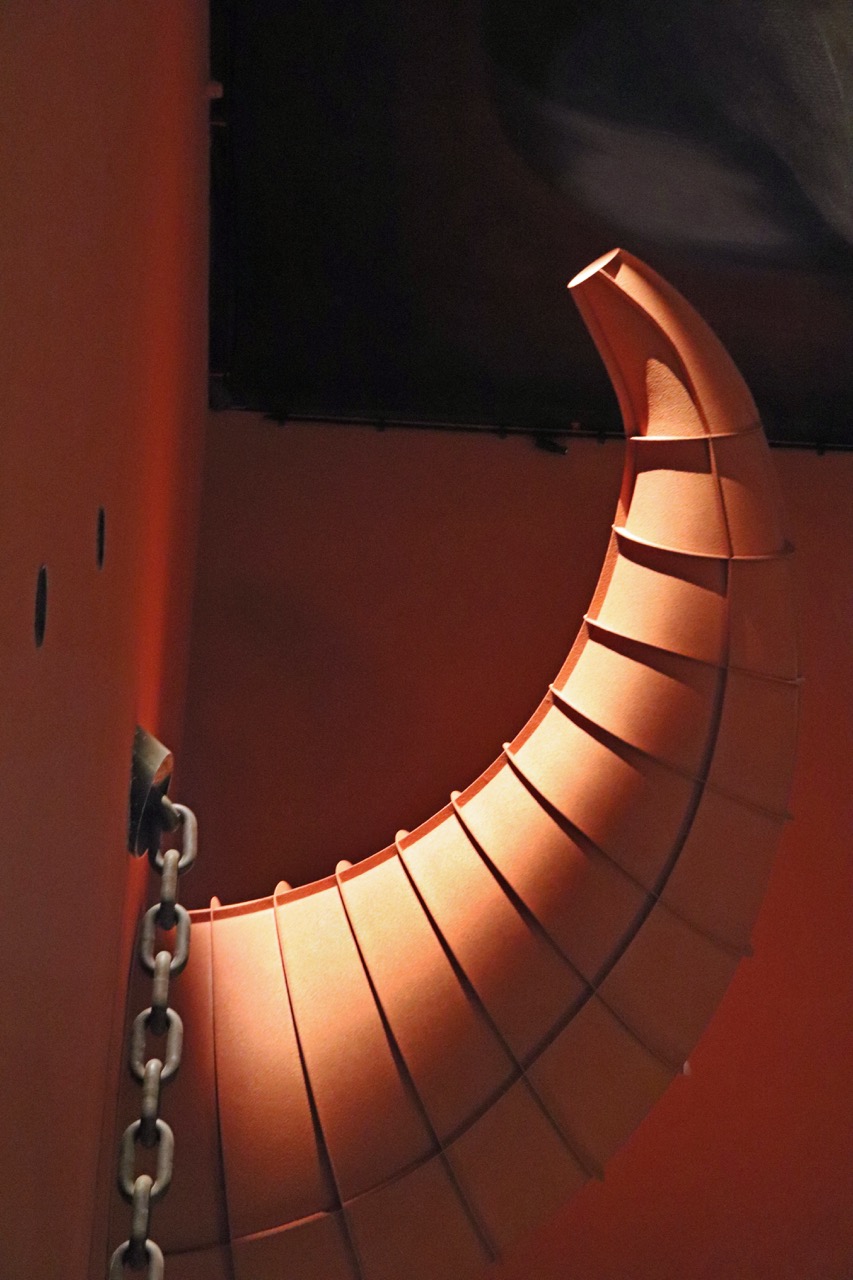
Clad in weathered corten steel, the building is as symbolic as it is sculptural. A giant horn and an enormous olive pierce its angular façade, hinting at the mythic relationship between nature and culture. Just below, a suspended terrace juts out like a mouth; part animal, part machine and part myth, it offers panoramic views of the grove. Starck describes it as “a big slap in the face that awakens, shakes, revives, stirs and celebrates the olive and its oil.”
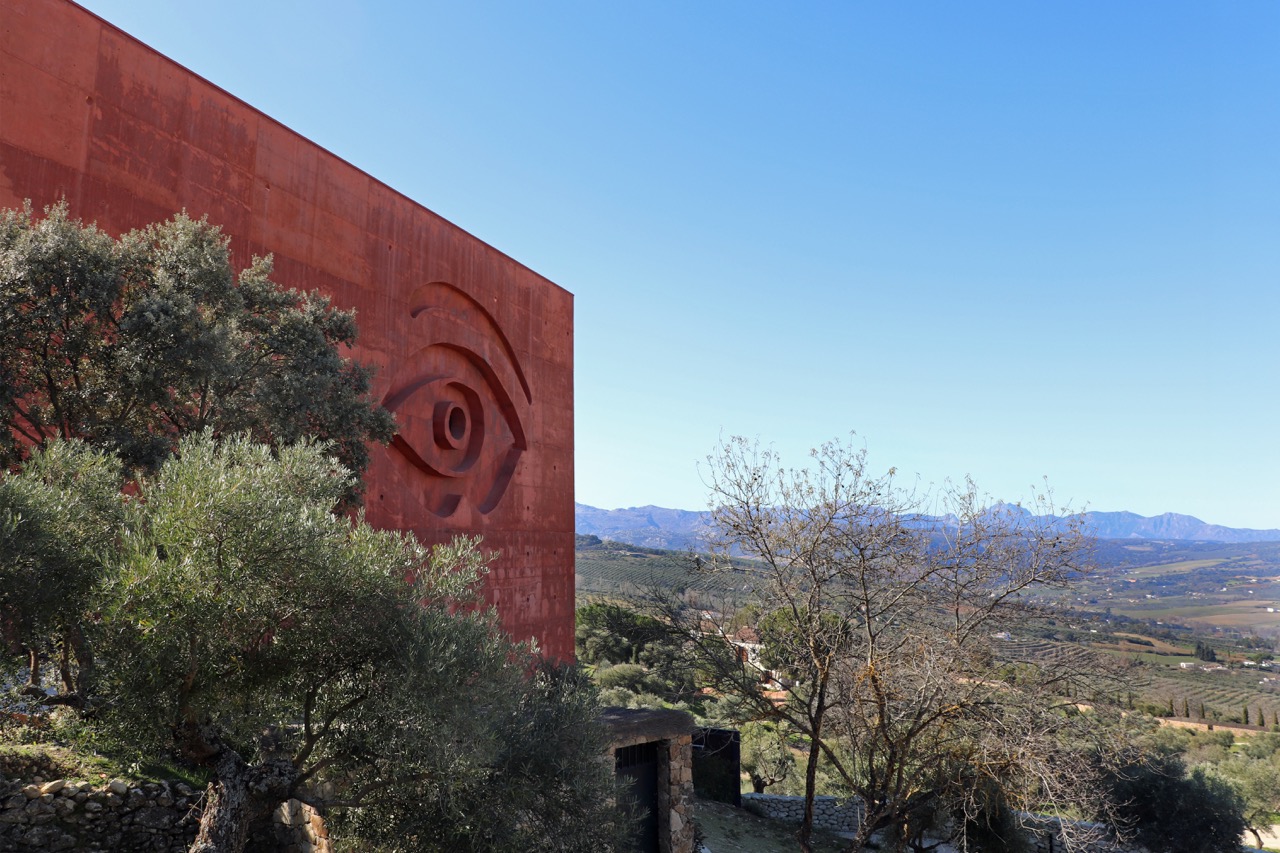
The influences for La Almazara include Picasso and Spanish surrealism
But La Almazara is far more than just a museum. It’s a living, breathing olive oil estate, where the extra virgin oil produced under LA Organic’s sustainable ethos is the liquid thread that ties together history, heritage and high design. Here, ten kilos of hand-harvested olives are needed to produce a single litre of oil – each drop distilled with reverence and precision.
The seed of La Almazara was planted far from Andalusia, in the storied vineyards of Rioja. In 2010, two Andalusian entrepreneurs toured the celebrated architectural wineries of northern Spain, where buildings by Frank Gehry, Norman Foster and Santiago Calatrava had transformed wine tourism. Inspired, they envisioned a similar confluence of design and tradition – this time, focused on olive oil.
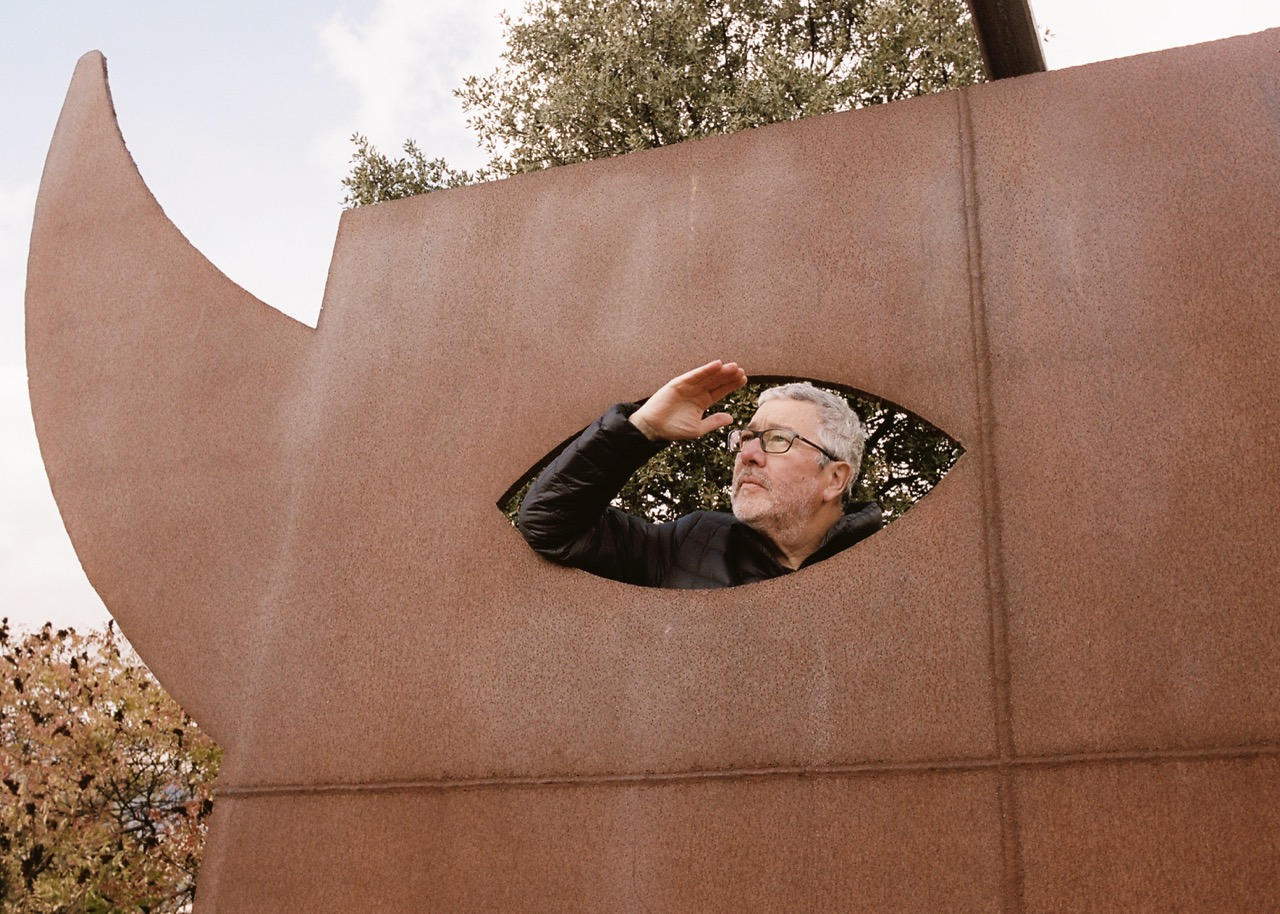
By 2014, La Almazara was born, and the team invited Starck to bring the vision to life. His response was immediate: “Olive oil is something sacred to me. When they made the proposal to me, I said yes straight away.”
Inside, La Almazara is a sanctuary of subdued light and rich storytelling. Starck, who gravitates toward darkness, has bathed the interior in shadow to heighten sensory immersion. Visitors move through dimly lit spaces lined with films, texts and artifacts chronicling the olive’s profound role in Spanish civilisation – Spain, after all, produces 45% of the world’s olive oil. Art and history collide in a cavernous central hall, where a massive Goya painting of legendary bullfighter Pedro Romero hangs near a portrait of 9th-century polymath Abbas ibn Firnás – the Andalusian who attempted flight centuries before da Vinci. Overhead, a ceiling mural by Ara Starck, Philippe’s daughter, swirls with symbols: bulls, olives, wings and echoes of Ronda’s rich cultural soul.
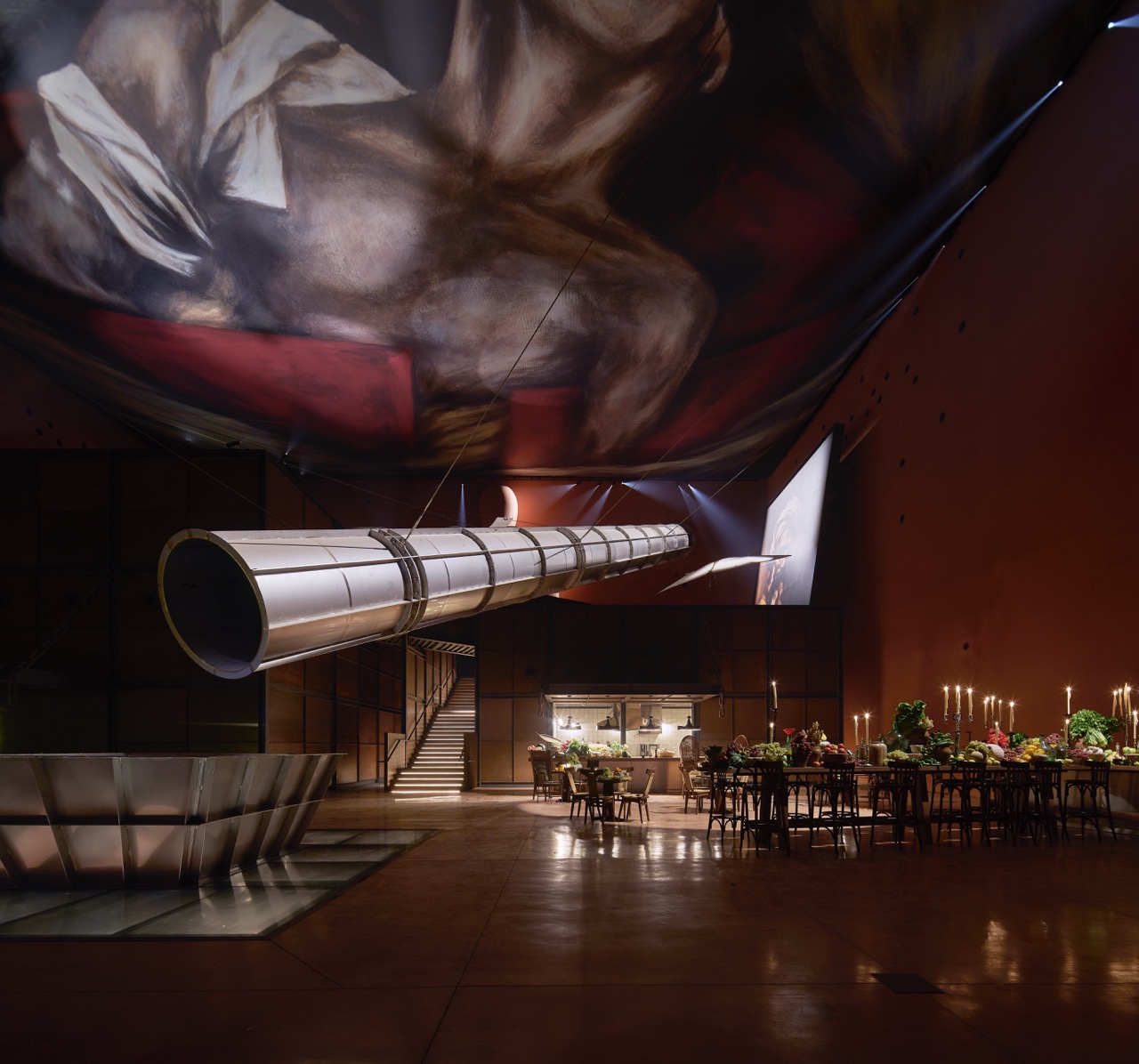
There is a giant painting on the ceiling created by Ara Starck, filled with symbols of bullfighting, olive oil, and other things associated with the city of Ronda
The building itself is polyhedral, cubist and unmistakably Spanish in its avant-garde ambition. Picasso’s geometric playfulness whispers through its angles, while the surrealism of Dalí seems to hover in the shadows.
While the art and exhibits are now open to the public, the terrace restaurant is still in gestation. When complete, it will serve inventive tapas and small plates paired with regional wines from Ronda. The terrace itself forms a dramatic platform suspended by oil tanker chains, framing Sierra de Grazalema like a living canvas. The site also features a small auditorium, a tasting room for LA Organic oils, and a boutique where guests can take home a piece of the grove.
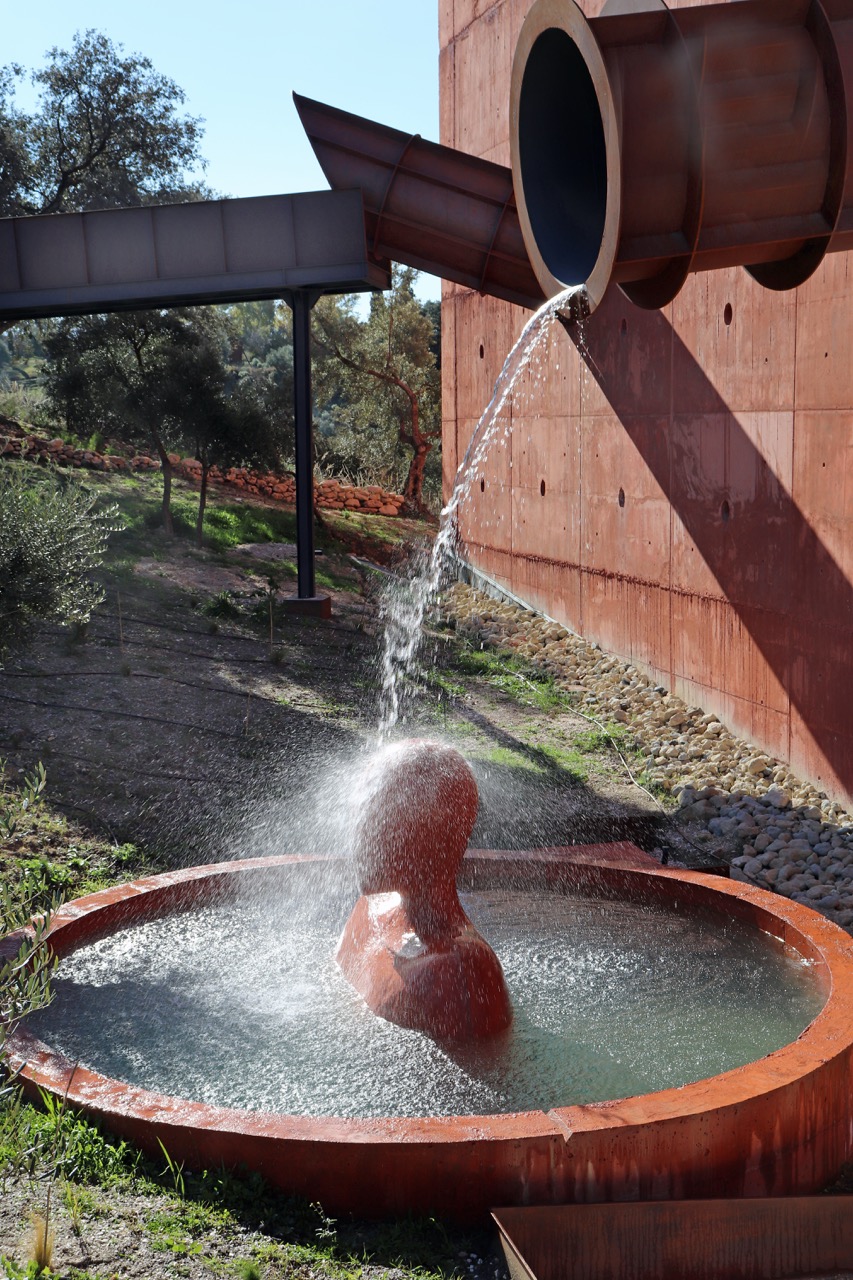
For Starck, who now resides on a Portuguese farm surrounded by olive trees and oaks, La Almazara is a deeply personal project. It embodies his lifelong pursuit of democratic design – of creating beauty and meaning accessible to all, not just the elite.
“La Almazara is a tribute to this respect for olive oil, a reverence born from all the civilisations that have preceded us,” he says. And in a world hurtling toward the hyper-digital, this olive-red cube stands as a quietly radical gesture: a return to roots, both literal and figurative.
Read more features here.
Photography by Carin Tegner and Alfonso Quiroga
The Latest
Saving Our Planet Through Regenerative Architecture
Eywa Tree of Life is designed to harmonise with nature, restore surrounding ecosystems, and support human health and longevity.
A Home Away from Home
This home, designed by Blush International at the Atlantis The Royal Residences, perfectly balances practicality and beauty
Design Take: China Tang Dubai
Heritage aesthetics redefined through scale, texture, and vision.
Dubai Design Week: A Retrospective
The identity team were actively involved in Dubai Design Week and Downtown Design, capturing collaborations and taking part in key dialogues with the industry. Here’s an overview.
Highlights of Cairo Design Week 2025
Art, architecture, and culture shaped up this year's Cairo Design Week.
A Modern Haven
Sophie Paterson Interiors brings a refined, contemporary sensibility to a family home in Oman, blending soft luxury with subtle nods to local heritage
Past Reveals Future
Maison&Objet Paris returns from 15 to 19 January 2026 under the banner of excellence and savoir-faire
Sensory Design
Designed by Wangan Studio, this avant-garde space, dedicated to care, feels like a contemporary art gallery
Winner’s Panel with IF Hub
identity gathered for a conversation on 'The Art of Design - Curation and Storytelling'.
Building Spaces That Endure
identity hosted a panel in collaboration with GROHE.
Asterite by Roula Salamoun
Capturing a moment of natural order, Asterite gathers elemental fragments into a grounded formation.
Maison Aimée Opens Its New Flagship Showroom
The Dubai-based design house opens its new showroom at the Kia building in Al Quoz.

